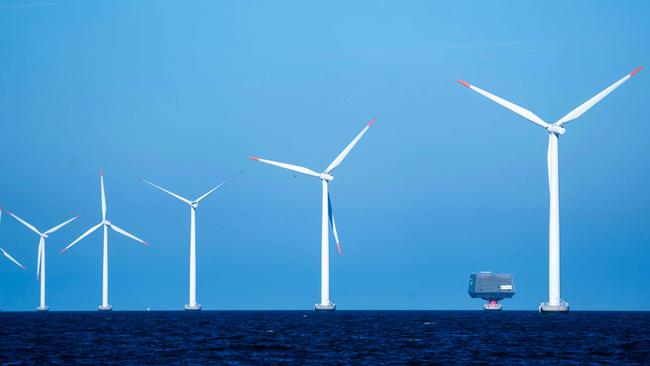Still no certainty around Equinor’s Hunter wind project as Chris Bowen grants new extension
Equinor, one of the world’s largest offshore wind developers, has asked for another three months to decide whether it wants to invest in an Australian project.

The federal government has granted Norwegian energy major Equinor and its local partner OceanEx a further 90-day extension to decide whether to proceed with a significant offshore wind development in the Hunter region of NSW – a delay that casts fresh uncertainty over one of Australia’s flagship renewable energy initiatives.
Equinor was initially given 90 days earlier this year to decide on the development licence, a period notably longer than that afforded to other proponents. The original extension, granted ahead of the 2025 federal election, was seen by some as a political hedge in case the Coalition formed government.
While Energy Minister Chris Bowen did not elaborate on the reasons for the delay behind a decision on the Hunter project, industry sources point to Equinor’s broader global withdrawal from several renewable energy markets as the key driver.
The Norwegian energy giant – earmarked to play a major role in Labor’s offshore wind ambitions – has made a marked shift away from green energy over the past 18 months. In 2024, Equinor shuttered its offshore wind operations in Portugal, Spain and Vietnam, and cut about 250 jobs, representing 20 per cent of its renewables workforce.
The company has also halved its investment in renewables, slashing its capital allocation from US$10bn ($15.5bn) to $US5bn, and reducing its 2030 renewable capacity target from up to 16 gigawatts to a more modest 10 to 12GW. The retrenchment has drawn criticism from climate-focused investors, including the Australian Centre for Corporate Responsibility, which raised concerns about Equinor’s pivot back towards fossil fuels.
At the same time Equinor said it would commit $US6.7bn annually through to 2035 in Norway’s offshore oil sector, with plans to grow its oil and gas output by 10 per cent between 2024 and 2027. This reorientation has prompted questions about the viability of its involvement in Australia’s nascent offshore wind sector.
The Hunter offshore wind project was one of the first six declared zones announced by the Albanese government as part of its drive to achieve net-zero emissions by 2050. Seen as vital to replacing retiring coal-fired power stations in the region, the project has been promoted as a central pillar in Australia’s decarbonisation strategy.
But industry observers say Equinor’s waning enthusiasm raises serious questions about the project’s prospects.
With the new 90-day clock ticking, attention will turn to whether Equinor and OceanEx ultimately take up the feasibility licence – or whether the Hunter project becomes another casualty of global energy sector recalibration.
A failed project could undermine investor confidence in Australia’s offshore wind industry and dent the government’s climate credibility just as it seeks to ramp up clean energy investment to deliver its renewables agenda.
Ailing market confidence would be a hammer blow to Victoria particularly.
The state has placed offshore wind at the heart of its plan to wean the economy off coal. Victoria is Australia’s most fossil fuel-dependent state, relying on three major coal power stations for baseload electricity and gas to meet demand during winter.
The state government in 2022 set a target of generating 20 per cent of its energy needs from offshore wind within a decade.
The target then doubles to 4GW by 2035, and 9GW by 2040. In all, Victoria sees potential for 13GW of offshore wind capacity by 2050, five times the current renewable generation in Victoria.
Keen to demonstrate the industry’s viability, Mr Bowen announced he has offered one offshore wind project a licence and a further two developments are shortlisted.
Mr Bowen also confirmed he would not offer a licence to Flotation Energy, backed by one of Japan’s largest companies, which had proposed a massive offshore wind farm in Victoria.
The Australian exclusively revealed how Flotation’s project, known as Seadragon, had been overlooked by Mr Bowen, despite being considered Australia’s second most advanced development and having secured millions in taxpayer funding.
Flotation successfully challenged the mechanism by which Mr Bowen made the decision, but the minister on Tuesday confirmed he would not reverse his decision.







To join the conversation, please log in. Don't have an account? Register
Join the conversation, you are commenting as Logout